Longform
Crucial Track for 17 April, 2025: If I Can't Change Your Mind
"If I Can't Change Your Mind" by Sugar
The prompt was 'What song do you wish you had written?' So many, of course, especially since I used to play guitar very badly and sing in bands, and I have written a few songs.
But for some reason, the one that popped into my mind was 'If I Can't Change Your Mind' by Sugar. Bob Mould's work after Hüsker Dü was varied, but this track off Sugar's first album is just glorious.
I'm Still Here, 2024 - ★★★★
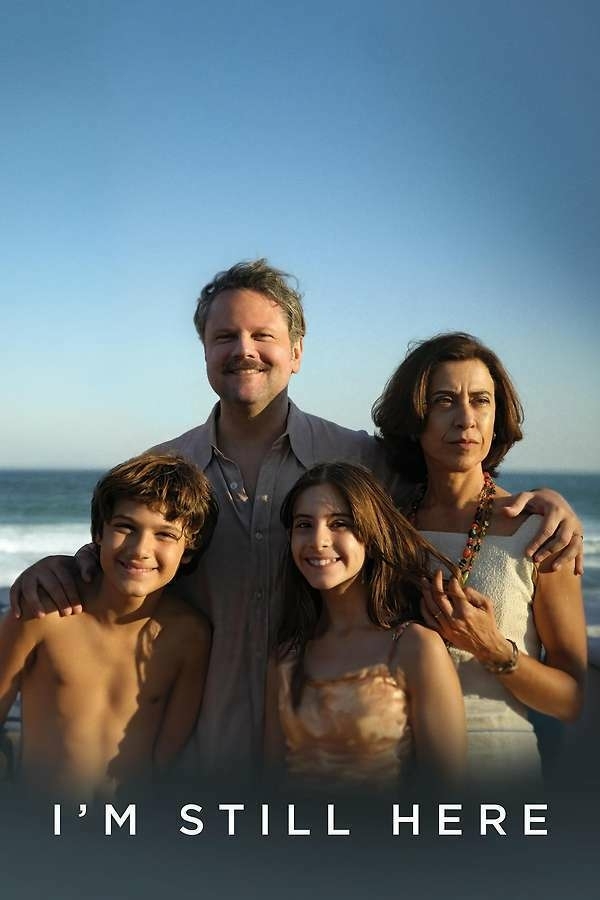
Outstanding drama based on the true story of a Brazilian family's experiences under the dictatorship in the 70s and beyond. Eunice Paiva's husband, Rubens, is taken in by the military. She, too is detained for several days and questioned, though released. One of her four daughters is also taken, but released after a night.
But Rubens is never seen again, his body, like that of many of his countryfolk, never found.
Sad, yet life-affirming, as it's about the resilience of the family, and Eunice's strength as a mother. She went on to become a human-rights lawyer.
Recommended.
📗 Books 2025, 9: The Interpreter, by Brian Aldiss
Slim, old-fashioned, good idea, but not that well executed.
📗 Books 2025, 8: The History of Rock ‘n‘ Roll in Ten Songs, by Greil Marcus
Should I include it if I started it years ago? Yes. Is it beautifully written? Yes. Is it definitive? Certainly not.
Soundtrack to a Coup d'Etat, 2024 - ★★★★½
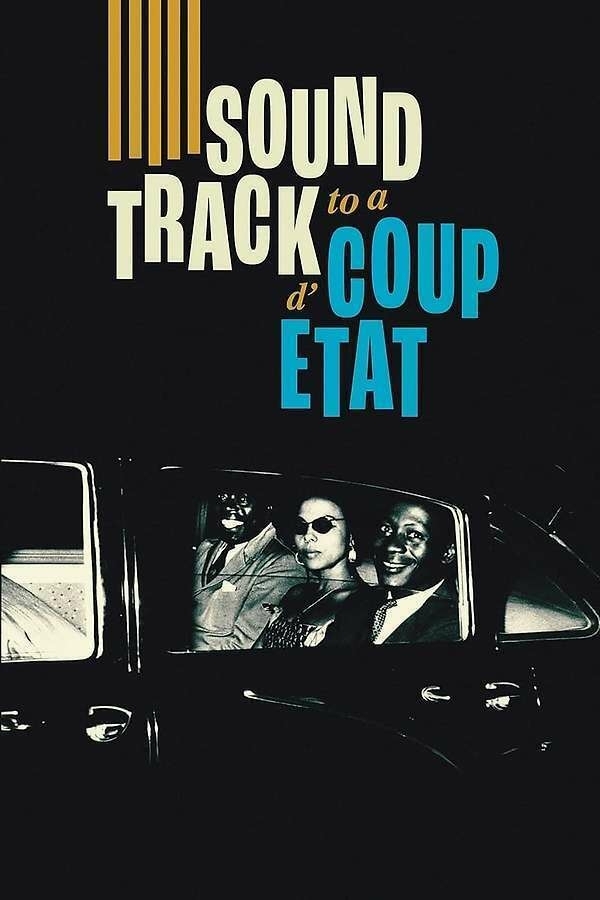
Absolutely loved this jazz-fueled documentary about the events running up to the assassination of Patrice Lumumba, first and short-lived prime minister of the Democratic Republic of the Congo in 1972.
It's a bleak, dark story, but so well told, and with such a great soundtrack, that you rarely feel anything other than pulled along by the narrative.
Which itself is kind of a piece of jazz in the way it's structured. The style has some similarities to Adam Curtis's work in its use of archival footage and the way it lets text, sound, and images overlap and interact. Though Curtis uses a voiceover narrative (or at least did in the one I've seen, while Johan Grimonprez here, does not, simply letting everything speak for itself.
The Ipcress File, 1965 - ★★★★
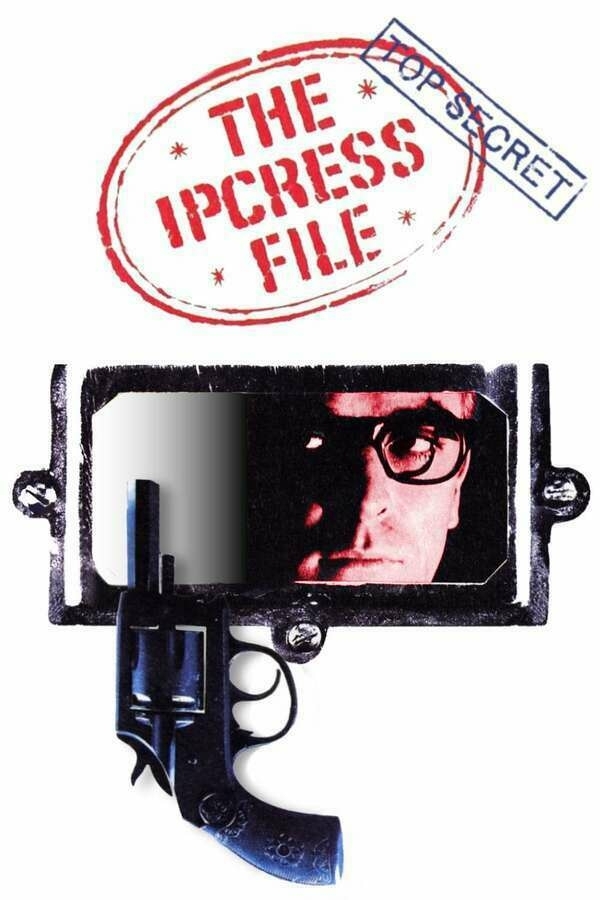
Great, stylish sixties spy story, with Michael Caine. He's a man who cooks! and makes coffee in — get this — a cafetière (french press to our American friends). Très Moderne!
More to the point, British scientists have been giving up their roles and/or disappearing mysteriously. The word 'defecting' is never used, The USSR is not mentioned explicitly. But this 'brain drain' is harming Britain's defensive capabilities. Harry Palmer joins a team that is investigating the disappearance of the latest scientist.
The plot isn't all that good, to be honest, it's a bit bumpy in places, not as coherent as I'd like. But the overall style of the thing, the way it plays to fears of mind control and brainwashing, and the general verve with which it's done, get it a high mark from me.
The Philadelphia Story, 1940 - ★★★★
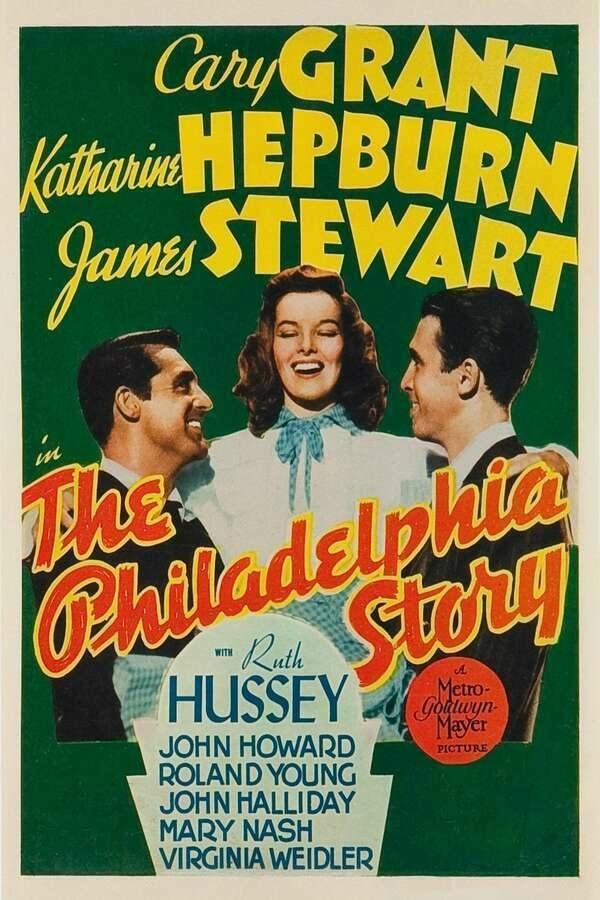
Really fun romcom from 1940. It cleverly keeps you guessing about who's going to get together with whom till very nearly the end.
📗 Books 2025, 6: The Pale Horse, by Agatha Christie
Christie does the supernatural! Or not? And reaches the 60s.
The Severed Floor is not the Black Lodge
In which I complain about Severance being too slow, not guaranteed to finish, and not Twin Peaks.
Maybe You Can Post Your Way Through Fascism
Some thoughts on how that post about posting not being enough might have discouraged some writers.
📗 Books 2025, 5: Annihilation, by Jeff VanderMeer
As The Dispossessed starts with a wall, Annihilation starts with a tower. And as LeGuin’s wall round a spaceport both closes the planet off from the rest of the universe, and encloses the universe, depending on how you look at it; so VanderMeer’s tower has its topological oddity. It starts at ground level and goes down, into the ground underneath it, rather than rising into the air.
Or so the Biologist sees it, But this is Area X, and things are rarely as they seem.
The Biologist is the first person narrator. Accompanied by three other women — the Psychologist, the Anthropologist, and the Surveyor — they are the latest in a series of groups sent in to investigate the mysterious zone.
Almost everything is unexplained in this book. It is incredibly compelling, gripping, even, but everything remains unexplained, the ending is open. Yet while there are three more books in the series, I feel it’s such a perfect little nugget, beautifully crafted, that to read on would almost spoil it.
I suspect that’s not true, though. We are in safe hands with VanderMeer, so I expect the continuation will be sound. I remember my friend Simon having a similar response when he read Hyperion. Its perfectly-crafted open ending seemed to him like it didn’t need a sequel. But of course The Fall of Hyperion was magnificent, and so were the two Endymion followups.
Anyway, this is great, but you probably already knew that, what with winning awards and being ten years old.
📗Books 2025, 4: Northanger Abbey, by Jane Austen

We started watching Miss Austen, the BBC serial about Jane’s sister Cassandra trying to get hold of Jane’s letters a few years after her death. That made me want to read some more Austen, the only I’ve read before being Pride and Prejudice.
So I tried Northanger Abbey. Which is mainly a spoof of the gothic novels that Austen herself would have been reading at the time, and also, of course, a romance.
I enjoyed it a lot, but it ended very surprisingly. It has the omniscient narrator you might expect for a book of its time, but it’s mostly written in close third-person. We are privy to Catherine’s thoughts and fears. But the thing is, when we get to the climactic scene, when everything is going to be resolved and our heroine end up happy (it’s not much of a spoiler), Austen (or the narrator) turns away.
Instead of being with Catherine as the hero rides to her emotional rescue, we are told about it. We’re kept at a distance, no longer aware of what’s going on in her head. It’s an absolute masterclass in the difference between ‘showing’ and ’telling’ in writerly terms; but the wrong way round for a really satisfying experience.
Perhaps it was a continuation of the style of those gothic romances she was parodying, but read today, it’s a strange choice.
Sweet Smell of Success, 1957 - ★★
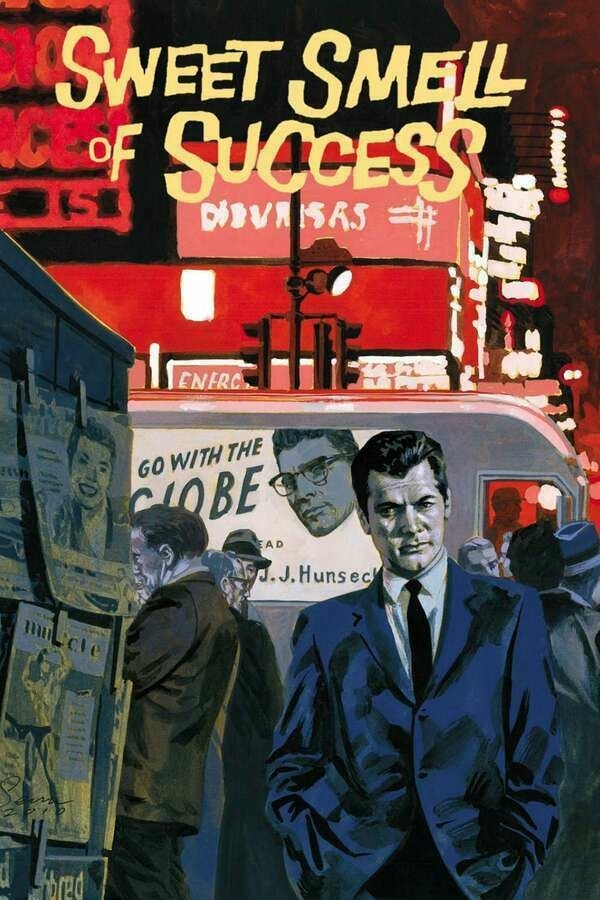
This film is at number 95 on this Time Out list of the hundred best films of all time that we've been dipping into.
Why?
It's really quite a bad film. Characters of no merit, dialogue that sometimes reaches snappy but often sits in the leaden cliché realm, and just general horribleness.
It's good for the scenes of New York, the crowd scenes in bars and restaurants, and yes, it has its moments. But overall, no, didn't do it for me.
It's not like amoral characters make the film amoral, but you need to have someone to root for. That should be the gossip columnists's sister and jazz guitarist who were a couple. Sadly they're just too feeble (and too sidelined) as characters.
📗 Books 2025, 3: The Great When, by Alan Moore

I think I read somewhere that this ends on a huge cliffhanger. It doesn’t. Or I wouldn’t describe it in those terms.
It has an epilogue, entitled ‘The Old Man at the End’, set 50 years or so after the main story. Someone we take to be the protagonist fears for his life; and the close-third-person narration hints at or mentions some events that intrigue. But we’re not left hanging.
The book is described as ‘a Long London novel’. though, so we certainly expect additions to the series in time.
The term ‘Long London’ is not used in the book, I think, though our normal, everyday London is called ‘Short London’ at one point. ‘The Great When’ is used, and is one of the terms for another London that exists parallel to ours in some sense. Certain people, with certain kinds of imagination (or damage), can find and use some few portals between the two realms.
You know the sort of thing. Parallel worlds, unseen realities, aren’t exactly new. But Moore is such a good writer, this is a high, fine example of the form, even if there have been others like it before. The richness of his description and believability of his characters make this a five-star affair, if I gave stars to books.
And books are key here. It all kicks of in 1949, when Dennis Knuckleyard, 18 years old, orphaned in the war, and working in a second-hand book shop, comes into the possession of a book that doesn’t exist.
It is imaginary, being named in an Arthur Machen tale. Which means he has to get it back to the other London before very bad things start happening.
Highly recommended, and I eagerly anticipate the next volume, despite not being cliffhung by this one.
Blogging and reading in 2024
A much-delayed summary of last year.
I read 26 books in 2024. One less than in 2023, but one every two weeks on average.
But only 98 posts, which is down on the year before. Here’s the monthly breakdown:
| Month | Posts |
|---|---|
| Jan | 13 |
| Feb | 10 |
| Mar | 6 |
| Apr | 6 |
| May | 8 |
| Jun | 5 |
| Jul | 6 |
| Aug | 7 |
| Sep | 10 |
| Oct | 12 |
| Nov | 9 |
| Dec | 6 |
Light blogging year, then, but I’ve written quite a lot of fiction, so there’s that. To say nothing of things like the currently-1500-word essay on my thoughts and feelings about AI, wherein I try to understand those things. That might appear here one day. I hope so.
📗 Books 2025, 2: Vivaldi and the Number 3, by Ron Butlin

I read about this some four years ago on Jack Deighton’s blog. It sounded interesting enough that I tried to order it via Pages of Hackney. But they told me it was out of print.
I couldn’t even find it on Amazon; no Kindle version. So I left it.
Until just recently, when I had cause to by some second-hand books from World of Books. Something made me think of this one. Quick search, and there it was.
And it’s even weirder and more fun than I imagined from reading Jack’s review. It’s a series of short stories, with some interconnections, about various classical composers (plus some philosophers). But it’s all deeply surreal. You’ll find Beethoven living in present-day Edinburgh, for example.
What’s it all for? I don’t really know. But they’re great little vignettes, easily digestible, and lots of fun.
Tales From Right Now
I haven’t really picked up on blogging properly since this year started. I didn’t, for example, write a summary post about last year’s entries, as I generally do. I’m also behind on books updates. The other day’s post was about a book I finished very early in January.
In fact, I’ve been kind of off the whole thing since November or so. Maybe earlier, but the USA’s apocalyptically stupid choice of head of state was the anti-icing on the un-cake of my feelings about the world in general.
I feel like I might be coming out of that downturn now. And strangely, I think I’ve got my new blog theme to thank for it. In part, anyway.
It seems daft, but just freshening the place up can make a difference, you know? So thanks once again to @Mtt, or Matt Langford, for the lovely Bayou Theme.
And we’ll see if things pick up a bit, here on the Bitface.
📗 Books 2025, 1: The Murder of Roger Ackroyd, by Agatha Christie

I got this by Agatha Christie for Christmas and started straight after Conclave, so technically last year. But I didn’t finish it till the new year, so 2025 it is.
Another great one from Christie, with a killer twist. Poirot has retired and is living in the country. But that kind of character never really gets to retire, do they?
A Complete Unknown, 2024 - ★★★★★
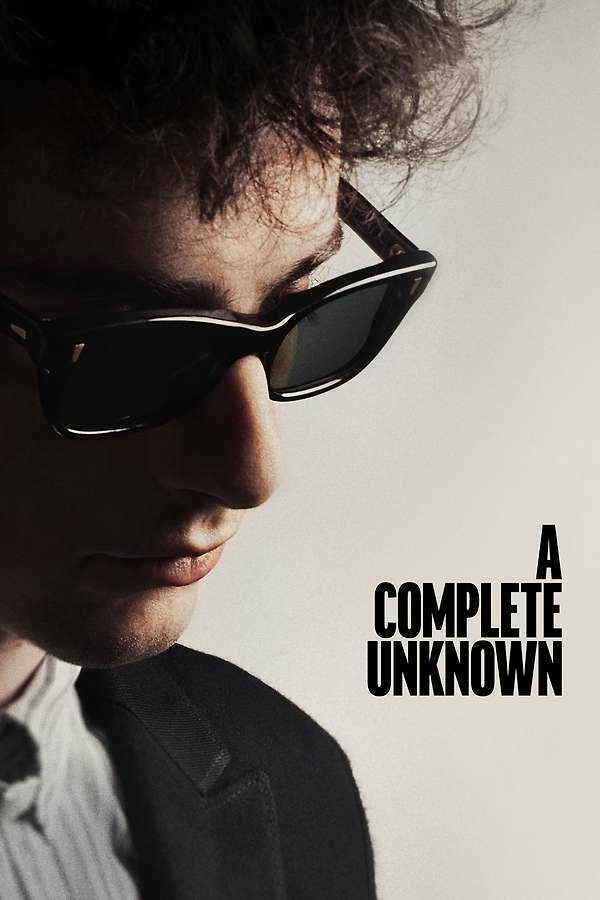
This is a glorious film. A dramatised version of Bob Dylan's early years on the New York folk scene and ascent into fame.
He visits Woody Guthrie in hospital, where Pete Seeger just happens to be visiting too. Seeger takes Dylan under his wing, encouraging him to focus on folk music.
Clearly some liberties have been taken with the details of events, but it's all in service of the story.
Timothée Chalamet gives an incredible performance as Dylan, and Monica Barbaro is luminous as Joan Baez. Their voices work beautifully together when they harmonise, and it's notable that both actors did all their singling vocals.
We see moments of the next few years, culminating in Dylan's famous appearance with an electric band at the Newport Folk Festival.
For a film set in the sixties, it's surprisingly pure. Not just in the sense of Seeger and the other folk purists on the Newport organising committee. There's hardly any suggestion of sex, and no drugs at all.
No drugs. In the sixties. Unless you count cigarettes (of which there are a lot) and alcohol (most of which Johnny Cash, played by Boyd Holbrook, has already consumed). There are scenes where Dylan, at least, is clearly meant to be stoned, but no consumption.
I think that says something about our times, rather than the time of the movie, but I'm not sure what.
Will you enjoy this if you're not already a fan, and/or know some of the story? Probably not as much as I did, but see it for the beautifully-realised exteriors and interiors of old New York, for the performances, and of course, for the music.
I want to go to a singalong showing now.